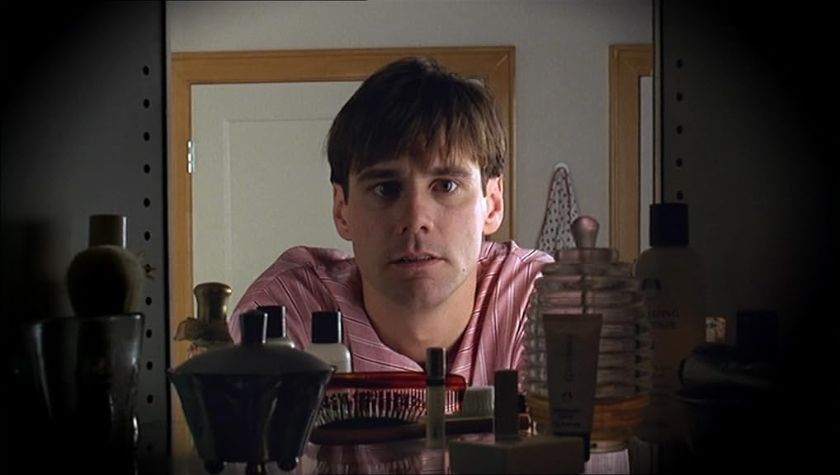Every screenwriter who types FADE OUT has had the same thought: Maybe this is the one that sells. It doesn’t matter if you’re a newcomer just starting your screenwriting journey, or if you’re an established and accredited pro screenwriter writing spec scripts in between assignments - every screenwriter wonders this with each script they complete.
Then months go by. Nothing. No meetings. Just rejection emails or, even worse, silence.
If you’ve written multiple screenplays and haven’t sold a single one, it doesn’t necessarily mean that your scripts are bad. But it does mean something is clearly missing - something the marketplace isn’t responding to.
Hollywood - and the open screenplay market - is a living and breathing ecosystem built on timing, trends, and execution. While there is no guaranteed formula for selling a script, there are still very clear reasons why your screenplay probably isn’t selling… yet.
Let’s break down those reasons and discuss how you can go about fixing them.
1. You’re Writing Only for Yourself, Not the Market
The Problem
There’s nothing wrong with writing deeply personal stories, using experimental structures, or developing creative genre blends that defy easy categorization. Plenty of highly successful and award-winning screenplays and films have prospered because of those types of screenwriting approaches.
But the industry buys what it can sell. Passion projects and big risks are a tough sell without proven credibility behind them.
You do want to write what you want to see on the big screen, yes. Why? If you want to see it in theaters or on streaming platforms, chances are there are millions of others with the same likes, preferences, and tastes in movies.
However, to be more successful in selling a script, you can’t only write for yourself. You have to cater to the version of you that is similar to the masses.
The Fix
You need at least one screenplay - preferably 3-5 in the long run - that works as a calling card for your brand. One that is commercially viable.
Don’t think this means that you need to write overly formulaic scripts. It really means writing within a genre, subgenre, or concept-type that producers, development executives, agents, managers, and streamers are actively invested in and searching for.
- Study what’s being purchased, developed, produced, and released by reading the trades and paying attention to releases, Rotten Tomatoes scores, and box office numbers.
- Recognize what trends are new, successful, and reliable.
- Notice what trends are tired, oversaturated, or dead/dying.
This type of research is important when you’re looking at your current spec scripts that aren’t selling. You need to review them and ask yourself:
- Is this concept exciting industry insiders or scaring them off?
- Has this concept been done too many times before?
- Is this script something that can be explained in one tight and clean logline?
- Is the genre of my script something that Hollywood is currently and actively seeking?
Passion will always fuel you to write and make your goals. Market awareness and objectivity in your own work with market awareness in mind will sell you and your scripts, or at least better the odds of drawing some attention.
2. Your Concept Isn’t Strong Enough
The Problem
You may have a great script that is written and executed beautifully, but if your concept doesn’t grab somebody in that one single logline, you’ve already lost them. All execs and reps read loglines first, before they ever open a screenplay. If your concept doesn’t seem like a marketable movie, it’s dead on arrival in their eyes, no matter how good the actual writing is.
Sure, them reading a strong script that they don’t necessarily want to buy can lead to consideration for writing assignments they may have. However, we’re talking about script sales here. If they don’t think the premise of your script is enough to sell to studio/network/streamer executives, financiers, or the audience, it’s not going to happen.
The Fix
Your logline is key. Make it unforgettable. Use the “What If” test to start:
- What if a shark started hunting people on a tourist island during the summer season? (Jaws)
- What if a man discovered he’s been living inside of a TV show starring him his whole life? (The Truman Show)
- What if a mild-mannered teacher became a meth kingpin? (Breaking Bad)
Then begin to develop a single logline that encapsulates the draw and wonder of that What If concept.
And with calling cards, we’re talking about high concept scripts.
High concept doesn’t mean simple, action-packed, or formulaic - it means immediately compelling.
If your idea sounds vague (“A woman trying to find herself after heartbreak”), try to dig deeper. Try finding ways to make your script have a better hook.
- Add irony.
- Escalate the conflict.
- Install a bigger twist.
- Blend the genre with another.
- Create bigger and more immediate stakes.
- Introduce a ticking time clock.
These are proven ways to make a script more desirable and sellable. It’s all about giving the powers that be a hook that sells them before they even read the script.
You can fix existing scripts using these methods or you can ensure that your next script accomplishes one or all of these goals.


3. You’re Marketing Your Script Too Soon
The Problem
You’ve finally finished the script. You’re excited. You’re convinced you’ve written a winner. The truth is that it’s likely still three or four passes before it’s ready to take out to the industry. Screenwriters often jump the gun, sending queries or submitting to major screenwriting contests, competitions, and fellowships before the script is where it needs to be to stand out and compete.
The Fix
When you’re done, put the script in a metaphorical drawer and take a month away from it. Don’t think about it. Don’t talk about it. And certainly don’t pitch, query, or submit it. Then, after a month, come back to it and read it cover to cover with objective eyes.
It’s all about making it the best it can possibly be. Check those important boxes that need to be checked for spec scripts going into the open market:
- Does it have a compelling title?
- Have you written a great logline for it?
- Does it hook the reader within the first few pages?
- Is the genre present and immediate within the opening pages?
- Have you introduced the core conflict quickly?
- Are the stakes high?
- Does the script get to the concept, story, and conflict within the first ten or so pages?
- Do the characters have an arc?
- Does your protagonist have both an inner (emotional) and outer (physical or present-to-all) arc?
- Does the conflict evolve and grow?
- Do you have twists and turns (this works in any genre, including dramas)?
- Have you set up plants and payoffs for those twists and turns?
- Do you have a great climax and ending?
These are the elements that all script readers are tasked with searching for in any submissions they are asked to review, judge, and cover.
Once you’ve addressed those questions and get to a draft that represents what you feel is your best possible effort, it may help to get some professional feedback.
- Submit the script to major competitions and fellowships like Final Draft’s Big Break.
- Opt-in for script coverage or feedback such places may offer.
- Turn to any industry mentors or contacts you may have and ask them to take a look.
A strong script that’s ready should not just read well - it should feel inevitable. Every choice, beat, and line should serve the concept, story, and characters.
You’ll only be more open to seeing the issues at hand when you step away from the script for a while and distance yourself from the high excitement and euphoria of completing a screenplay. When you go in with more objective eyes, you’ll see that the flaws (and strengths) of the script will pop out the instant you read them.
Remember, the script you send out is your first impression in an industry that rarely gives second chances.
4. You’re Too Late Jumping on a Trend
The Problem
Jumping on a trend bandwagon is difficult. Why? Because by the time you write the script and try to get it out there, a year or two (or more) has passed. Meanwhile, Hollywood has already saturated the trend because they already had an inside perspective on it while it was gaining steam in development and production. Even when a hit comes out of left field, Hollywood can greenlight a trend-following response within a year.
The Fix
You can either try to get ahead of a trend or write something that is more timeless.
Getting ahead of the trend game usually entails taking a current trend and flipping it on its head with a new twist or genre blend. Hollywood loves what is familiar. So does the audience. But they both collectively seek out different versions of what they love to see in a script and movie. So, give them that.
Otherwise, focus on more evergreen subgenres that Hollywood is always looking for.
- Contained thrillers
- Contained sci-fi
- Contained action
- Character-driven horror
- Fish out of water comedies
These types of subgenres are always desirable commodities for Hollywood because audiences love them, and they’re either cheaper to make or are more sure-things when it comes to box office returns or downloads/clicks.
The key is to always be thinking a step or two ahead of trends and evergreen subgenres by finding unique and exciting twists on otherwise familiar and trending tropes.


5. You’re Not Networking - You’re Just Blanket Emailing
The Problem
Your marketing approach is off and unfocused.
- You’re sending cold queries into the void, hoping someone bites.
- You’re looking up the most famous and successful studios, production companies, agencies, management companies, streamers, networks, producers, agents, managers, directors, and movie stars and blanket-querying them.
- You’re direct messaging any name in the industry you can find on social media platforms.
The Film/TV industry is relationship driven. It’s not a lottery. Scripts sell because someone trusted a writer, not solely because a random email subject line caught their eye.
The Fix
Yes, you can get into the conversation via a cold query. However, you need to start with networking. Stop thinking in terms of connecting with gatekeepers. Instead, think in terms of industry connectors.
- Go through your personal connections and see if there are any potential industry connectors you can make, no matter how far removed.
- Take a look at your geographical network and see connectors you can find that share the same home town, home state, college, etc.
- Try to attend major writing conferences and film festivals.
- Submit your scripts to major competitions and fellowships, and when/if you place high and get access to Hollywood insiders, keep those connecting bridges open.
When you build authentic relationships, opportunities can multiply organically. The next time you have another prospect, someone in the industry will actually want to read it because you are already proven in their eyes.
6. You’re Marketing to the Wrong People
The Problem
You may have a brilliant script that accomplishes all of them above. However, you’re marketing it to the wrong people. Again, you’re blanket-querying the industry because of email addresses you found on IMDbPro. You’re pitching historical epics to those known for producing action flicks and sci-fi epics.
The Fix
- Do your research.
- Join IMDbPro.
- Look up recent movies that are similar to yours in genre, tone, subject matter, etc.
- Find out who is making those movies and query them.
- Find out who is writing those movies, see who represents them, and query those reps.
- Read the trades and see who is buying scripts and learn what scripts they’re going after.
Yes, some companies and insiders may be making a wide variety of movies. However, you’ll generally see what types of scripts they are looking for.
- Maybe they focus on true stories from all genres.
- Maybe they search for trend setters that are offering something familiar with a twist in all genres.
Do your research. Don’t just throw a query blanket over the whole industry, or to those you have gained access to via acquired email addresses or social media accounts. Be specific.
7. Your First 10 Pages Don’t Have a Hook
The Problem
You’re either spending the first ten pages setting up a huge set piece or you’re spending that coveted script real estate introducing your characters in their ordinary world, trying to offer background and character depth.
The Fix
When you’re trying to sell a script, you need to hook a reader quickly. Even taking ten pages is too much. Do it within the first few pages to better your odds.
How? There’s no secret formula. It’s all trial and error. It’s about finding a way to get to the genre and concept quickly. Options include:
- Start your script later in the story where a major cliffhanger can be present, and then jump back to the beginning of the story where you introduce your characters. This engages the reader quickly by making them wonder how those characters get into that predicament. (Watch Netflix’s Extraction)
- Introduce your core conflict early with an intriguing opening scene. (Watch the opening of Scream or Jaws for easy examples).
- Briefly introduce your character(s) in their ordinary world and have the conflict hit them right away. This is known as throwing your protagonist into the fire right away. (Watch the opening of John Carpenter’s The Thing)
Whatever you need or choose to do to get the reader hooked quickly will do your script wonders. You can easily change an existing script of yours to accomplish this with just a few changes.


Treat Screenwriting Like a Career and Learn Why Scripts Sell
Keep evolving as a writer. Don’t put all of your eggs in one basket. Work to get a stacked deck of 3-5 high concept spec scripts so you look like a seasoned pro with many ready-to-go options for Hollywood.
Beyond that, be patient. It takes time. Learn from the above, adapt, and keep writing.

